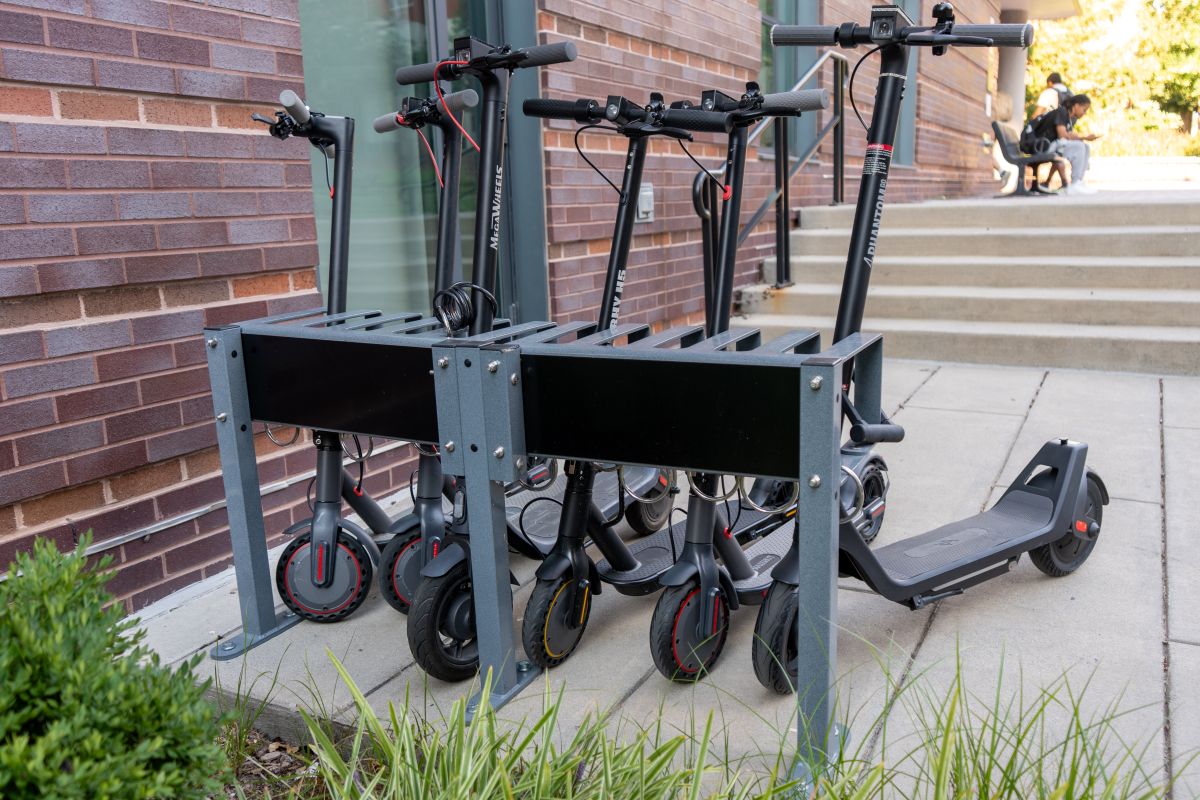
Towson no longer allows e-scooters in university buildings
By Morgan Lane, Staff Writer
Towson University put a new policy in place this fall that regulates the use and storage of personal riding devices, like e-scooters.
The e-scooter policy falls under the university’s Personal Mechanical Conveyance policy, known as PMC. It prohibits students from parking, riding and storing their e-scooters, e-bikes and other PMC devices in academic buildings, residence halls and any other campus facilities.
Steve Jones, senior vice president for Campus Operations, alongside Vernon Hurte, senior vice president for Student Affairs and University Life, created the policy after an e-scooter charger overheated and caught fire in the Residence Tower’s garbage shoot where a student had thrown it away.
Jones described the event as “a wake-up call.”
“We didn’t really have any guidelines, well, formal guidelines,” Jones said.
After assembling a committee they decided on several rules. The most notable being banning indoor use, including storing e-scooters in residence halls.
Operators can only park PMCs in designated racks and charging areas around campus, which, according to Parking and Transportation Services, include: the Glen Towers, between C and D, Scarborough Hall and Residence Tower.
Stations at Marshall Hall, Towson Center loading dock, the Towsontown Garage bridge, 10 West, Richmond and Newell Halls and West Village will be ready for use in late October, according to Jones.
Those who fail to comply with the procedures in the policy can have their PMCs impounded or receive a citation. Jones also wants to enforce a “soft period,” from Aug. 1 to fall break, where students who don’t follow the policy will first get a reminder rather than a penalty.
However, some students see the new policy as a negative.
“I think it’s kind of stupid, because what if, like, what if you didn’t have a lock or something?” sophomore Fatmata Sallia said.
Riders must also yield to pedestrians, may not carry passengers and are prohibited from wearing headphones while operating their device. They must stay to the right side of pathways and obey general Maryland traffic laws.
“I think it’s fair,” junior Heath Alexander said. “I think the scooter people are a bit of a danger to the public, especially on the bridge.”
Jones hopes this new policy will help educate residents on the importance of community safety.
“We don’t want any serious damage to either student’s property or others’ property,” he said.
